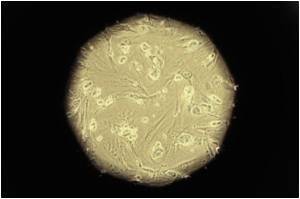Stem cells derived from a patient with an inherited heart disease known as QT syndrome could help test specific treatments for the disease, says scientists.

Prof. Lior Gepstein then coaxed these stem cells - which have the capability to become any cell type in the human body - to become cardiac cells.
The newborn heart cells showed an abnormal electrical activity in the laboratory, recapitulating clinical presentation of the long QT syndrome patient, making them useful for studying this potentially lethal disorder.
The research team was then able to test several types of drugs to find out how they might aggravate or alleviate long QT symptoms in the cells.
The study can help scientists learn more about how a disease like long QT syndrome works at the cellular level, Gepstein said.
But it also offers a glimpse at the future of personalized medicine, where a person's own cells can be used to determine which treatments might work best-or should be avoided-for a particular condition.
This disturbance can cause a fast, chaotic heartbeat that triggers fainting, seizures, and can result "in sudden death in otherwise healthy young individuals," according to Gepstein.
In the study, Gepstein and colleagues used skin cells from a 28-year old woman with type-2 LQTS, which is caused by a single genetic mutation.
The results appear in the January 16 issue of the journal Nature.
Source-ANI
 MEDINDIA
MEDINDIA




 Email
Email










